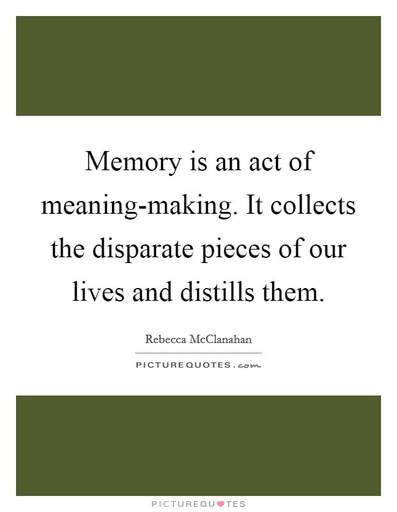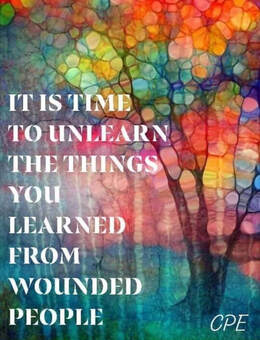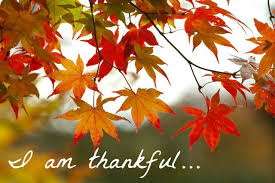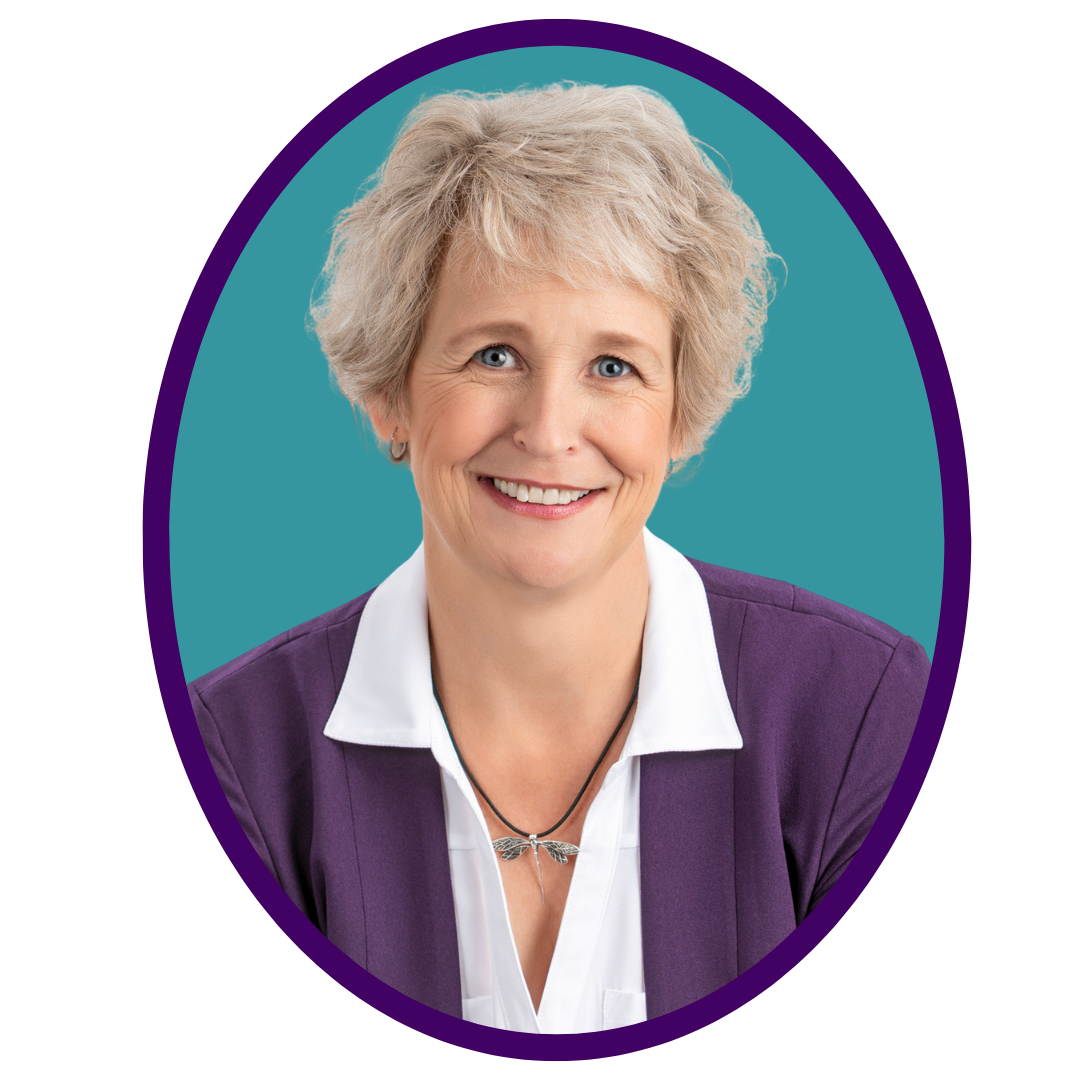|
"I texted her yesterday morning and still haven't heard from her. She must be angry about something. What did I do? I mean, I had coffee with Tina without inviting her, but she was working; she wouldn't have been able to join us. Maybe we should have scheduled it for a time when she could have, after work or on the weekend maybe..." I'm sure a similar scenario has played out in your own head on more than one occasion. This week. Let's face it, we are meaning-making machines. We like to understand our world, to make sense of it, so our minds fill in the blanks. That's absolutely natural, but there are different types of people in the world. There are those who write out a number of scenarios in their heads and others who pick one and believe it to be gospel. I, uh, struggle with the latter. At the same time I envy them. It must be very comforting to live in a black and white world, where "because I believe it" is reason enough to look no further. And then they keep seeing information that confirms their bias. Because they're on Facebook. But that's a whole nother rant to get into. It's easy to see, then, how beliefs get formed and reinforced. Imagine a young child realising for the first time that she was unplanned. Imagine if she heard the words, "You were an accident." You are an accident. Even when it's followed up with, "Best mistake we ever made," it'll still leave a mark. Every time she vies for her father's attention and doesn't get it, she will feel less than. If she brings home a bad mark, she will see herself as a disappointment. Any relationship that ends will remind her that there's something inherently wrong with her. Imagine how she might compensate for those perceived flaws. Do you think she would be a people pleaser? And her needs wouldn't just come last, right? They wouldn't be acknowledged at all. She might be promiscuous as validation of her value. At least somebody wants her. Let's take it a step further. What if her promiscuity leads to an unwanted child of her own? It's not difficult to see that pattern perpetuating through the generations. It's crazy to think that one event which, when seen through the eyes of an adult, is insignificant can impact a life so greatly. Her parents wouldn't probably even have given it another thought. But to the developing mind of a child, it was everything. It was her identity. It's obvious to us that there was no intent to injure on her parents' part. It's just life. When I suggest that we're all broken, it's because, well, we're all broken. In some way. And our parents/guardians/caretakers are the single most influential unit in our young lives. I remember from a young age my mum getting really upset watching a TV show or hearing a story involving psychotherapy. "Sure, blame the mother!" But yeah, it's that parenting unit that teaches us who and what we are, where and whether we belong, our values and our value. Kids aren't just small adults. They don't have an adult's capacity for critical thinking. And they are ridiculously literal. I mean, seriously, shouldn't they come with at least a modicum of understanding of nuance? Or a manual? I want to take a minute to circle back to those black and white thinkers. Do you notice the similarity? Literal, no nuances, limited critical thinking? And temper tantrums, can't forget about those. See, what happens is part of our personality gets stunted when we suffer an emotional trauma. For all intents and purposes, we stall emotionally in that moment. When faced with a similar trigger, then, we react in the same manner as a child. Strong emotions like rage, embarrassment, and panic show us what those triggers are and where work needs to be done. Rage was my go to, y'know, before I got all woke 'n' stuff. My friends still laugh about it, but it was horrible. Did you know that perfectionists really shouldn't take up golf? I raged against, hated, and berated myself for bad shots. There was one particular incident at Valley Ridge which stands out. I could not get out of a fairway bunker. One attempt. Two. Three. Four... Then a bunch more f-words including flailing against the offending sand. My playing partners were vibrating with laughter and avoiding eye contact. Funny, right? No. It was my depression bumping up against my I'm not good enough. My I suck. My What the hell is wrong with you?! So, when my family laughs about my nephew Devin throwing his first golf club at age five and proclaims, "He's one of us!" I worry that they're right. We are meaning-making machines. We began to heal when we are able to look at the experiences of our past with the eyes of today. We can journey backwards and see our parents' intent and love. We can rewrite our story from the perspective of a grown up. We can forgive or, more likely, understand that there's nothing to forgive. The most important thing we can do is heal ourselves but remember how our traumas manifested, so we can recognise them in our loved ones and help shatter the pattern. What do you want your legacy to be? AuthorBased out of Calgary, Canada, Christie Morden is a Mental Health Coach specializing in midlife transformation. When depression nearly took her life at age 45, she finally decided she was done living with the pain of her past. She believes hypnotherapy was the missing puzzle piece and built her practice around it. She branded her style of coaching Quicknotherapy, a signature blend of traditional client-centered coaching and hypnotherapy techniques which have been found to be both more effective and more efficient than traditional psychotherapies. Christie's clients can experience dramatic results in a single session, and many issues resolve within three.
0 Comments
This weekend I was asked who my ideal clients are and I responded easily, "The adult children of a narcissistic parent; to my mind, they are the most damaged." This morning I was catching up on my Facebook. For professional reasons, the Narcissistic and Emotional Abuse page is among my See Firsts, up there with Two Drunk Ladies and Karin Slaughter. Hey, I have eclectic tastes. Anywho, the first article I saw this morning was about the ageing narcissist. The author, a victim of narcissistic parenting herself, suggested that if a narcissist lies alone on their deathbed without a hand to hold, that is Karma, God having the final say, or - her preference - pay back (sic). I say she, the author, needs some serious healing. Imagine being so bitter and angry that you cannot find clemency for a dying person. My heart breaks for all involved. No, not pity - to me, that requires a feeling of superiority that I just can't muster - but a level of compassion that I wish the author could. Was her parent a manipulative, hyper-critical, self-centred monster? I will assume yes. I can sympathise with the author not wanting to be present at her parent's deathbed, but to want them to face death alone, to say that they deserve to face death alone, tells me more about the author than her parent. Isn't she herself being exactly the person she is accusing her parent of being? Critical, passive-aggressive, and monstrous in her own right? The easy argument is that her narcissistic parent conditioned her, programmed her, trained her to be that way. My question to her is, "Is it not possible that your parent, too, was also conditioned, programmed, and trained?" Other than sociopaths - whose characteristics can overlap with those of a person with narcissistic personality disorder, it's true - people, especially our parents, do not set out to deliberately hurt us. They are simply living in reaction to the way they themselves were raised. We were all narcissists when we were kids, like between toddlerhood and our teen years, the early years as we strove to get our needs met - my nephew Devin's, "How 'bout me?" - and couldn't understand the needs of other people, and the latter in our struggle for independence and self-identity. We grow out of it unless we ourselves suffer a trauma that stunts us somewhere in that window of time. Left unhealed, it shows up as temper tantrums, lack of empathy, dogmatic judgmentalism, and a need for ego-stroking into/throughout adulthood. What if we could find compassion for the child they were or for the person they could have become if they hadn't been wounded in some way? This weekend I worked with a man, let's call him David, whose father was abusive towards him, towards his brother, towards his mother. Now David has already done some great healing work. It was necessary for him to move his young family out to Alberta and his father's influence. Over the past quarter century or so, David has forgiven his father - not his behaviour, but the man. That only fully settled in inside of the past month or so, since he began with hypnotherapy, and has brought some peace into his life, but its residual effects are still pretty strong. Mostly those present as anxiety, mistrust of others, and an emptiness inside of himself. On the weekend, David went on a little journey in his mind. He met his father's child-self and intervened on his behalf, protected him from being beaten by his father. David was able to look at his grandfather and tell him, "No! You will never raise your hand to this child!" And David and his father walked out of that house and into a park, where David was able to say to his young father all of the things he wished he could have heard from him when he was alive. He hugged him and told him that he loved him, that he was proud of him, and that he was a good boy. He also vowed to protect him from harm. David watched his father grow up until they were the same age, the approximate age his father was when David last saw him. Dad looked different. There was no anger in his eyes, only love. The hard lines on his face had softened. The two middle-aged men played in the park together, happy, equal. And a small piece of the void inside of David was filled. He got to feel compassion for the boy his father had been and connect with the man he could have become. It was beautiful to be a part of. I'm not going to take you through our entire session, but there's another piece that I am incredibly pleased with. As I mentioned, David struggles to trust people, so I asked him to begin our journey by imagining himself inside of a Manhattan apartment and to visualise a door with seven locks on the inside of it. I invited him to undo the locks. After a few minutes, and in a fearful voice, he asked, "Who's on the other side?" A fair question, right? I reassured him that it was just me, and he relaxed visibly and undid the locks. I mention this because, at the end of our session, I had him go back into the apartment but to find that there were only five locks, but he corrected me. "No, there's only one." And a dinky one at that! This man who has been walling himself off for over fifty years was able to feel safe behind one simple lock. Maybe next session he'll be able to leave the door open. So, if you find yourself angry or bitter enough toward someone that you wish them ill, just remember that that is you coming from a place of pain. Your peace will be found when you uncover those wounded inner parts of you and heal them. Leave the world better Oh, shoot, there is one other part of David's story that I want to share. See, David was given a sign with his family name on it. His relationship with his father was so bad that he even hated the name, didn't even want to attach himself to it, so the sign got relegated to a spot under the couch. The problem is, David has a son and a grandson who share that name, let's say Smith. No, not Smith. That makes no sense. Something a little more unique, easier to plant his flag in... Crouch. Yeah, that'll work. After having done a lot of that relationship repair work with his father, David was no longer embarrassed by the name Crouch. In fact, he began to embrace it. He leaned into the love he has for his son and grandson, and his pride in the name began to swell. More importantly, so did his sense of self-esteem, his love of and pride in himself. Crouch wasn't just his father's name; it is David's. And his son's. And his son's. And those Crouches will never feel ashamed of their name. Not on David's watch. The three of them are hanging the sign this week. What do you want your legacy to be? AuthorChristie Morden is Calgary's premier mental health coach. Her unique and revolutionary Quicknotherapy, a blend of hypnotherapy and coaching techniques, helps her clients achieve results fast and get the healing that they and their families need to break the cycle of generational emotional trauma. I don't have a gratitude practice, per se, but these days I can usually find something to be grateful for. On harder days my best friend and I play a little game we like to call Gratitude. We're creative like that. The rules are simple; you keep your eyes open and peeled for those little joys that present themselves every day. It's so simple to get bogged down in the negative emotions that can accompany an argument with a family member or a work deadline or, y'know, watching the news, so looking for the good can be a necessary part of one's day. I'm not talking about the big stuff - family, having a job and a home - I'm talking about a wave from a driver you let in in front of you, seeing a smiley face in the pattern of the ceramic tile in your bathroom, or experiencing a beautiful cloud formation. Here's a smattering from April, 2015:
That last one was hard to write. One of our (two - we're not crazy people!) cats, Lucy, had just been diagnosed with kidney disease (with which comes much vomit), to which she succumbed six months later at age eighteen. I am grateful to have had her love in my life. She and her sister Marley showed me that it's possible to be both a cat- and a dog-person. I've been thinking about them a lot this week, because Wednesday was their birthday. Marley died a year and a half after Lucy. For nineteen and a half years they graced our lives. Literally from Day One. When I was going to Mount Royal College to study massage therapy, we were oh, so generously invited to live with an amazing woman who was the outdoor foreman on a dairy ranch in Springbank - shout out, Cindy!! <3. In the spring of 1997, Cindy brought home, well, I can only describe her as a living, breathing Nermal (of Garfield fame), the cutest kitten in the world. Beyond cute, Rosie was gorgeous, grey and white with black markings and curious eyes. Cindy brought her home at six weeks. She was knocked up at six months. Her first heat. Famous last words, "There are no toms on the farm." There was one. And he was orange. By the time they were born, we had moved out of Cindy's, but on the morning of October 9, the call came in. "It's time!" I rushed from our Bridgeland apartment and arrived at Cindy's in time to see the boy, Cheetoh, and Lucy (named for the orange patch on her head and her Lucille Ball scream) being born. Marley was already a squirming, sightless blob. I will spare you the details of the next several minutes (there was an ick factor), but Rosie had her kids cleaned up pretty quickly after, uh, fortifying herself with iron. They lived the first six weeks of their lives in a Stetson box - you should have seen the little buggers learning to get in and out of it! - then our little girls came to Bridgeland to live with us. I was smitten. They were as different as night and day. If anyone wants to get into a nature/nurture debate, this is where I will start. Where Marley would come when she was called, Lucy would never even let you know that she was under the coffee table at your feet. Lucy favoured tinsel balls, while Marley played with catnip mousies. Though they both free fed, Marley was underweight and Lucy was plump. We figured it was because she was the runt, starved in utero then wanting forever after to be sated. Maybe not. In spite of always having access to food, she maintained a steady weight. She wasn't obese. It's funny, now I think about it, just how differently the cats were judged. It was like there was something inherently off about Lucy. So many people told us that we should put her on a diet. She didn't understand their words, obviously, but the judgment sure made me want to rummage in the pantry. And that happened more and more as she got older. I'll admit, we did force her onto a diet, not because the vet told us to, but probably for appearances. What the vet did tell us was that she was the sweetest cat - a fact we knew well. (Marley was much less vet-friendly, but that had as much to do with the fact that she mostly went in there to get her anal glands expressed as her temperament, I'm supposing.) My point is, why did we cause Lucy undue stress? She was happy and healthy. She was arthritic at the end, but eighteen is the equivalent to eighty-eight in human years. Why wouldn't she have been? So, we carried her up the stairs when she seemed sore, and we put a cat-house-bucket-scratcher-thingy (?) beside the chest at the foot of the bed to make it easier for her to climb up. Now, you can say, "Sure, but Marley lived longer," to which I respond that I think she was actually the freak between them :D Nineteen and a half is like ninety-four for us, yet she would still tear around the house regularly. But only once. Marley died in April of 2017. It was heartbreaking when it happened, but it was time. What I hadn't counted on was how hollow the house would seem without the cats' presence. I had been saying just that when, in early December, we got a text. A friend's daughter was splitting up with her fiancé and moving home. She had two cats, but Dad was deathly allergic. Did we want them? That text came on a Monday. We met the cats Wednesday. They moved in Friday. And on this Thanksgiving Sunday, I want to express my gratitude for the love they offer us. We catch ourselves sometimes comparing them to, or even just referencing, "Our Girls," which isn't fair, I guess - Koza and Frankie are definitely our girls - but maybe that's how our mindset has to be. Eighteen plus years they were with us; I never want to feel like we replaced them. We didn't. We have tonnes of room in our hearts for all of them. And for that I am grateful, on this and every day. They make my world better. Nope, I didn't have a farce clue where that was headed. That's kinda the way I like it. I don't like turkey dinner. I know that sounds like blasphemy to many of you, but it's true. I spent many a Christmas and Thanksgiving listening to my mother talk about how much she dislikes turkey dinner. The stress of potentially drying out the bird, the timing of the vegetables, everything conspired to create tension in the house. Anything short of perfection is failure. One Thanksgiving the bottom element of my oven burned out, and I produced a turkey that bled out on the platter. Sorry, Uncle John! One Christmas I thought I'd slow roast the bird and managed to render all of its soft tissues into sludge. That one was for my parents and younger brother. Through all of these years, though, I seem to have forgotten how much Thanksgiving really means to me. Not in a crazed, football-infused American way, but in a much sweeter and more thoughtful way. When I was nineteen, in my first year of university, I got two Thanksgiving dinners, or suppers, I guess, as I was in New Brunswick. I was only a year into the university experience and had made some of the best friends imaginable - hell, I married one of them! I was a stranger and they took me in. I was welcomed into their homes like one of the family, so I using this moment to express my gratitude. And to my mother-in-law Carol who is visiting, I would like to also apologise for those moments this week when I have allowed my stress to get the better of me. It's reflexive, and I am trying to do better. I will never forget your kindness all of those years ago. You brought me into your home - two years of Thanksgivings in a row and many more times besides - and even sent me home with leftovers. I thank you and know that your generosity of spirit has left its mark on me. I love you. What do you want your legacy to be? AuthorChristie Morden is Calgary's premier mental health coach. Her unique and revolutionary Quicknotherapy, a blend of hypnotherapy and coaching techniques, helps her clients achieve results fast and get the healing that they and their families need to break the cycle of generational emotional trauma. 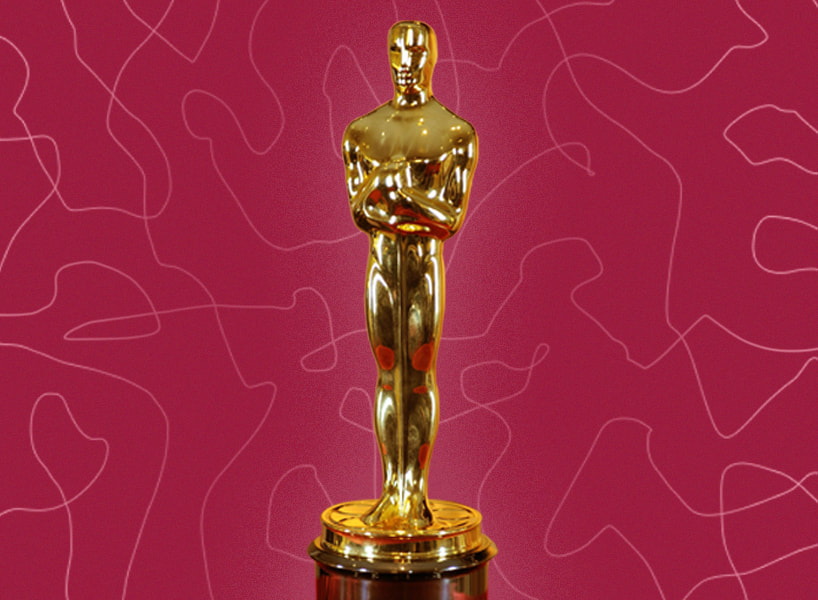 I feel like I've given y'all a glimpse into who I am (some of which is, apparently, an American southerner), but I've never talked about the fact that I'm a total cinephile. Well, maybe that's not exactly the right word. I mean, I enjoy some films which have received critical acclaim - though I will never understand The Shape of Water's appeal - but, mostly, I want a movie that entertains. As far as genres, I like all sorts, though I am mostly drawn to action movies and psychological intrigue. That said, I have also been known to enjoy the occasional horror flick. What I mean by horror is a movie with a story, some suspense, and random hits of adrenaline. I have given up on the gore of the Saw franchise. A couple of decades ago I was at one such horror movie. I cannot for the life of me remember the show, but the experience is one I'll never forget. There must've been a promotion on buckets of popcorn, because we usually get a bag - this is important. There we were, happily enjoying the show when the scary music started and something jumped out on the screen. I, the holder of the popcorn, clenched and squished the bucket into the air. It all happened in slow motion. Noooooooooo... I reached for it, but it was too late; it upended on the nice woman in front of us. Through guffaws I apologised, "I. Am. So. Sorry!" It didn't even get a smile from her. I tried to assure her that it was OK; we don't get butter on our popcorn, but she wouldn't be assuaged. Meh. Accidents happen. Maybe they were on a date. I bet that relationship didn't last. He laughed his arse off. Fast forward to yesterday. Who's seen It: Chapter Two? I don't know if there's a horror movie that I have enjoyed more ever. I mean, I loved An American Werewolf in London and all of the odd numbered from the Nightmare on Elm Street series, but It 2 is in a class by itself. First of all, it's (It is :D) three hours long, far too long for any suspenseful movie to be, but, most importantly, it is a psychological romp. Warning: From here on out I will be adding spoilers. If you are planning on seeing It, stop reading now. The story is a - I don't want to say sequel - it's a continuation of the original story, set twenty-seven years later. The trauma suffered by the fourteen year-old heroes of the original dog them into adulthood. They all suffer from repressed memories. The clown, Pennywise, is the incarnation of their inner voices, the ones that tell them that they're fat, undesirable, and will die alone, or that they are responsible for the death of their brother, or a coward. Who doesn't have a Pennywise living in their head? As a hypnotherapist, what struck me most about the movie was the way the characters were able to change, if not the past, then the emotions that they had about the past. Each character bounced back and forth between their fourteen year-old selves and their forty-one year-old counterparts. They were able to rewrite or, at least, understand a new perspective of their memories. And the final battle? Brilliant. They made Pennywise smaller in their minds. Initially, they thought they would have to make him shrink himself physically, but, no. "There's more than one way to make something small," so they bullied the bully, made him shrink in their own perceptions, and were, ultimately, able to come out victorious. They even changed the past! The headline from a newspaper article which had been written about one of the guys' parents' death changed from (and I'm paraphrasing because the Google let me down) "Crackheads burn in house fire" to "Local couple dies in electrical fire." It is absolutely brilliant! Pennywise preys on each character's insecurity. We hear what their experiences were twenty-seven years earlier and how they were impacted through those years. Imagine being the child of one of the only black families in Smalltown Maine. Or being gay. Or abused by your father. Or being the fat kid. Or the brother of a child who died. Or overprotected by your mother. All of those traumas follow the characters and, finally, when they're ready, the adults take back their lives. They destroy the memories and the emotions that are attached to them and free themselves. That, my friends, is the power of the subconscious mind. I must own this movie. Leave the world better I had a massage client last week who signs her invoices with her middle initial, B. I asked her what the B stood for and she, rather sheepishly, admitted that it was Bertha. She told me that it was her grandmother's name, so she loves including it in her signature as a reminder of her grandmother. Sweet, right? I heard Pennywise's voice in my head when I listened to Dorothy's story. I was honoured with my Auntie Anne's name as my middle name, and, despite the fact that I include the A as part of my signature, I never think of her. Never. Or I didn't. Until now. My Auntie Anne died by suicide when I was young. Honestly, I don't remember her. Sorry, Dad. I would like to, but all I know of her is that one picture of her from when I was about four. All we ever do is cover the lower half of her face up and say how much she looks like my younger brother, Pete. I could have/should have had a piece of her twenty-seven years ago - huh. Isn't that an interesting coincidence? - when I was travelling through Europe. I was living in a VW Transporter which got broken into. All of my Christmas gifts - which my parents had entrusted to my girlfriend, Leesa - were stolen, including a recording of Auntie Anne telling the story of the Littlest Angel. Just like her, it was gone forever. It was all I had left of her. That and Pete's eyes. What do you want your legacy to be? AuthorChristie Morden is Calgary's premier mental health coach. Her unique and revolutionary Quicknotherapy, a blend of hypnotherapy and coaching techniques, helps her clients achieve results fast and get the healing that they and their families need to break the cycle of generational emotional trauma. |
Christie MordenMental Health Coach Archives
March 2022
|
